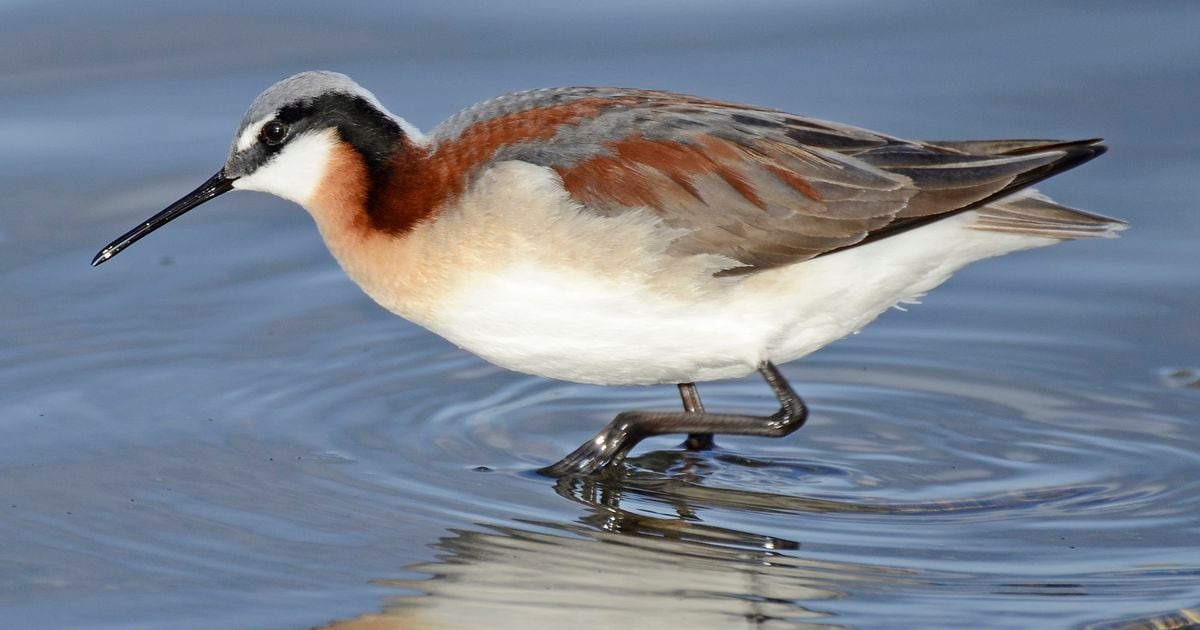Pay wall. Can you copy it and paste it please?
The culture wars have come home to roost in Utah after the Legislature passed a bill forbidding state wildlife officials from following the American Ornithological Society’s effort to find new names for birds named after people.
The AOS, which has maintained a list of bird species since the 1800s, has been studying the issue of bird names since 2021, and last fall it committed to changing the names of up to 80 species, most of them named after white males, including some with racist histories.
The organization says it will diversify membership on the committee that will choose the new names and promises a process that includes public involvement.
“The AOS commits to changing all English-language names of birds within its geographic jurisdiction that are named directly after people (eponyms), along with other names deemed offensive and exclusionary, focusing first on those species that occur primarily within the U.S. or Canada,” the organization said in a statement last November.
But under HB382, a wide-ranging wildlife bill that passed the Legislature on its last day Friday, the Utah Division of Wildlife Resources would be required to use “the English-language name assigned to a bird by a naming entity that was in effect on Jan. 1, 2020, when using an English-language name while engaging in the management of the bird or habitat for the bird.”
The measure, which hasn’t been signed by the governor, also would require the division to “advocate against changing the name of eponymous English-language names for birds,” and the division would be tasked to “seek the support of national organizations with which the division affiliates to advocate against the change.”
“What this does is say to the division that we’re going to maintain the standards that have existed for 100-plus years,” the bill’s sponsor, Rep Casey Snider, R-Paradise, told the House Natural Resources, Agriculture and Environment Committee. “We’re going to maintain that scientific integrity by freezing in time those naming conventions, and then the division is going to work with sister agencies to ensure that our sister states are moving in that direction.”
DWR spokesperson Faith Jolley said because the bill would keep things as they are, there are no materials that need to be updated or costs associated with that part of HB382.
Jolley said the division employees “work closely with the Association of Fish and Wildlife Agencies and also with the Western Association of Fish and Wildlife Agencies, and we will coordinate with them on this matter.”
How many Utah birds could be affected?
The wildlife division lists 462 species in its field checklist of Utah birds, but only a few of them include the names of people.
Among the birds to be renamed is the Wilson’s phalarope. About a third of the world’s Wilson’s phalaropes spend summers at the Great Salt Lake. The bird is named for Scottish American naturalist Alexander Wilson, who has been called “the father of American ornithology.”
Cooper’s hawk, which is named for American naturalist William Cooper and can be found throughout the U.S., is also on the list.
Also slated for renaming is the Scott’s oriole, which can be found in Utah along the Colorado River. The bird is named for Winfield Scott, a legendary 19th-century general who oversaw the forced relocation of Native Americans.
Arguments for and against
“Eponymous common names are essentially verbal statues,” says the website for Bird Names for Birds, an advocacy group that has pushed for the name changes. “They were made to honor the benefactor in perpetuity, and as such reflect the accomplishments and values that the creator esteemed. We are not bound by either the intention or the regard; we should make decisions about who and what we honor based on our own values, values that create a more equitable world for all.”
Another group, meanwhile, has gathered more than 5,800 signers to a petition asking AOS to reverse its decision.
“The attempt by AOS leadership to appear more diverse and inclusive has created an unprecedented and unnecessary division within the birding community unseen in our lifetimes,” the Change.org petition states. “… There is much to remedy in a science that has historically been dominated by white males, but changing bird names, many of which were described and named in a different era, and trying to hide ornithological history will not remedy this history.”








